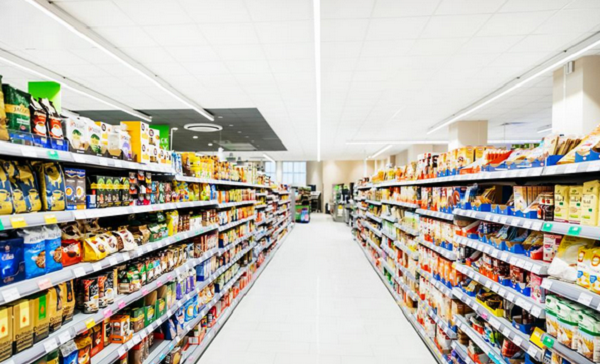Grocery code of conduct is happening – whether Walmart and Loblaw accept it or not, Champagne says
As of last week, the Canadian grocery code of conduct — a document that some food executives and politicians believe could fix many of the problems plaguing the grocery business and lower prices in the process — looked like it was going to die.
Loblaw and Walmart, two of the largest retailers in the country, were refusing to sign it. Galen Weston, Loblaw’s board chair, told the House of Commons agriculture committee last week that he believed his rivals in the food business were putting the industry on a bad course, one that would end up handing too much power to global food brands and, in the end, drive up prices rather than lower them.
“We will stand up for customers even if it is unpopular,” Weston said.
But federal Industry Minister François-Philippe Champagne fired back in an interview this week, urging Loblaw and Walmart to work with the rest of the industry to reach a deal, because the government is adamant that it’s happening whether the two chains like it or not.
“We will have a grocery code of conduct in Canada one way or the other,” he told the Star on Monday. “Get back to the table and work with the industry to find a way forward.”
Proponents of the code say it will stamp out alleged bullying in the food business by laying out a set of rules of engagement for grocers and their suppliers. Food producers say the market is so concentrated that big grocers are able to charge unfair penalties for unavoidable infractions, like late or short shipments, on top of fees of more than $100,000 in some cases just to get a product on shelves, according to a 2021 government report.
Suppliers say they had no choice but to pay the fines and fees, even if they disagreed, because they couldn’t afford to stop doing business with one of the big chains in Canada, where five companies control roughly 80 per cent of the market.
But last week, Weston told MPs that that the code risked swinging the power balance too far the other way, which could give the upper hand to global food brands.
“A one-sided code that removes a retailer’s ability to hold vendors accountable to their commitments would risk higher prices,” he told the agriculture committee.
Champagne said he didn’t understand Weston’s reasoning.
“I don’t see that when I read the code,” he said.
In the same committee hearing last week, Walmart Canada CEO Gonzalo Gebara said the draft of the code, as written, wasn’t “in a position” for him to sign.
Until Walmart and Loblaw publicly criticized the code, negotiators believed it was going to be a done deal by early 2024. This fall, the federal government was heralding the forthcoming code of conduct as one of the key pillars in its plan to strengthen the supply chain and combat inflation.
But without support from Loblaw and Walmart, many in the industry feared the whole thing would unravel, wasting more than two years of negotiations.
The problem, at this point, is that the code is voluntary. Early on in the process, the federal government determined the issue fell under provincial jurisdiction, so Ottawa couldn’t step in with legislation to create a mandatory, national code of conduct. And few in the industry were keen on the prospect of navigating a bunch of different provincial codes. So in 2021, Ottawa, along with the provinces and territories, appointed a mediator to help a group of industry leaders from agriculture, retail and manufacturing write their own code.
The upside of an industry-led code was it would be quicker and simpler to implement. The downside was that for the rules to really work, all the major players in retail and food production needed to agree to follow them. With Walmart and Loblaw now on the fence, Empire CEO Michael Medline told the agriculture committee that the code is now “in dire straits.”
“Those who don’t like the code are stalling,” said Medline, an outspoken supporter of the code. “They’re saying things that aren’t true.”
On Monday, Champagne met with a group of provincial and territorial cabinet ministers in charge of consumer affairs, along with the federal competition watchdog, to talk about ways to address the affordability crisis. Champagne said the ministers discussed the code of conduct, but he said he isn’t ready to start trying to make the code mandatory through some sort of joint effort with the provinces and territories.
“We’re not there yet,” he said. “All the work that’s been done by the industry needs to be honoured.”
It’s not clear what happens next, or whether any of the negotiators are willing to budge enough to bring Loblaw and Walmart onside. Michael Graydon, a manufacturing lobbyist who is one of the lead negotiators on the code, said he believes the two companies are misinformed.
“Somebody has briefed (Galen Weston) very poorly,” Graydon said, though he stopped short of saying there was no way the two sides could find common ground. “We’re not closing the door. But there has to be an element of reasonableness.”
In a statement on Wednesday, Loblaw spokesperson Catherine Thomas said the chain is ready to negotiate with other industry leaders, but won’t sign a code “that is not in the best interest of our customers.”
Walmart Canada spokesperson Sarah Kennedy said the retailer will continue to give feedback to negotiators.
This article was reported by The Star
















